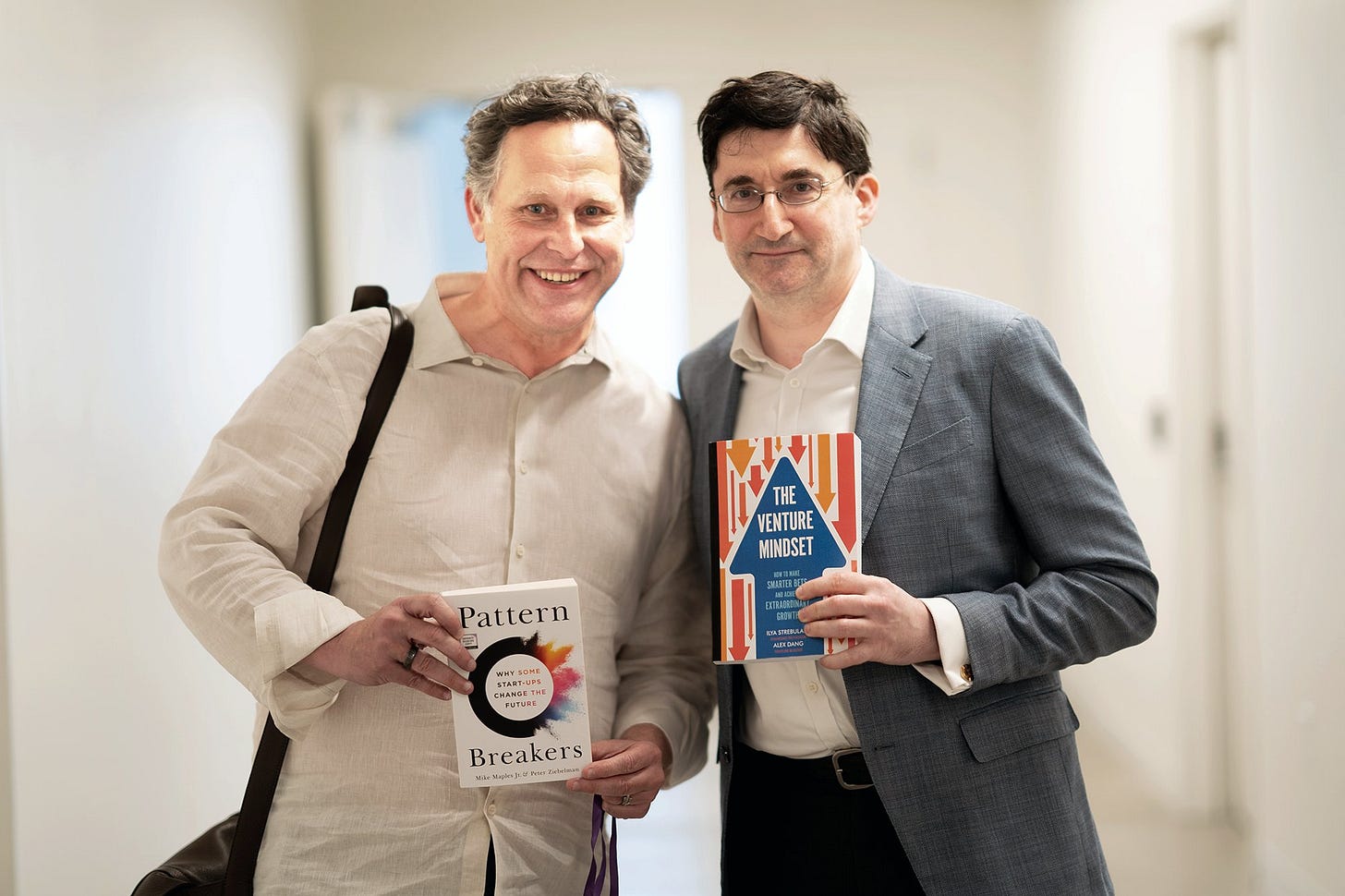The Venture Mindset – A Compelling Addition to Your Summer Reading List
Ilya Strebulaev at the Stanford Graduate School of Business and his colleague Alex Dang just came out with a book that should be on your summer reading list – The Venture Mindset.
Business is never a fair fight
When I talk about entrepreneurship, I emphasize that business is never a fair fight. Most of the time, it's tilted in favor of the incumbents, with their superior resources, processes, and experience. Yet, The Venture Mindset shows how, despite the odds, upstarts can get the upper hand – by adopting the right mindset. This is very consistent with the key premise of Pattern Breakers.
Ilya and Alex back this with tons of facts and data. They estimate that three-quarters of the largest U.S. companies founded in the past 50 years would not have reached their scale without VC support. Examples include firms like Apple, Google, Moderna, Netflix, Airbnb, OpenAI, Salesforce, Tesla, Uber, and Zoom. These businesses have redefined entire industries, despite starting with far fewer resources than their well-established competitors. It's fun to see the value these pattern breakers have brought to the world.
A tale of two mindsets
The book isn't about praising venture capitalists (we VCs can be our own cheerleaders too often). It's to show how the venture “mindset” differs from the corporate manager mindset, and how this difference opens up opportunities for breakthroughs.
The venture mindset is about making bets with low failure costs but massive upsides. Risk is not about avoiding failure. Risk is what people take to maximize expected value in the face of high uncertainty.
The corporate mindset seeks steady, uninterrupted growth and expansion of what already works. This often brings good returns for shareholders, but over time it fosters a culture of consensus and safe bets instead of bold risks. Ironically, avoiding failure creates the greatest long-term risk. The average tenure of firms on the S&P 500 has dropped from 35 years in the late 1970s to around 20 years by 2019, highlighting the pace of disruption.
The 9 key principles of the Venture Mindset
The book lays out nine key principles, each highlighting where to focus and traps to avoid.
These principles certainly resonated with me and felt in many ways like the VC corollary to the pattern breaking characteristics I look for in founders. I’ve written before about preparing your mind to attract insights and luck and the virtue of disagreeableness from a founder perspective.
Mastering Dual Mindsets
For corporations to adopt the VC mindset, they need to recognize situations where the venture mindset is necessary, such as developing breakthrough products or responding to disruptive threats, and applying the risk profile of the VC mindset to these high-stakes decisions.
Embedded in each of their nine principles are specific, tangible actions that corporations can take. The authors argue that by adopting these actions, corporations can boost their ability to innovate and compete in a fast-changing world.
Peter and I also cover this in Pattern Breakers. Our findings align closely with those of Ilya and Alex.
Catching up with Ilya at the AI Rabbithole Conference.
Essential Insights for Founders
If you're a founder looking to raise capital, this book will help you understand how VCs evaluate your company. (I wish I had read it at the start of my entrepreneurial journey or when I made my first Angel investments.)
If you're in a large company, this book will show you the difference between "fail-safe" bets for sustaining the core business and "safe-to-fail" bets for creating new ventures and disruptive capabilities.
And if you're a VC, this book is a reminder of our true mission and how we can better fulfill it.
Congrats to Ilya and Alex. Nicely done.








